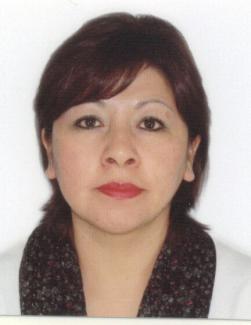Voluntary health care workers
“Agents of change”
 Condori
Irma Condori
Condori
Irma Condori
What must health authorities and the government do to implement SAFCI, the comprehensive right to health?
Their first step should be to inform decision makers and civil society about SAFCI. They must raise awareness and promote the underlying idea, without causing confusion by going into details at this stage. SAFCI can only work if everyone understands the concept, including, for example, that traditional health workers need to be involved. Primary-level and grassroots organisations matter, they must be strengthened and engaged in cooperation. These things need to be widely understood.
What is the next step?
Well, it needs to be determined which actors shall assume responsibility for exactly what roles and tasks. The regional context must be analysed, so realistic action plans can be drafted, taking into account each community’s potential and opportunities. It is unfortunate, moreover, that the assistential approach still prevails in Bolivia’s resource allocation.
What does that mean?
It means that specialised hospitals in our few big cities have priority, while no progress is made towards developing health-care facilities at the primary level. These facilities lack the resources and staff they need for genuinely participatory health-care management. SACFI, however, can only be implemented properly if all parties are involved. Unfortunately, to date, there have been only a few isolated efforts to work in that way.
What role do voluntary health workers play?
They must assume a fundamental role in health promotion. We are talking about leaders who belong to the local communities. They are very good at promoting self-care, prevention and a sense of mutual responsibility. I see them as agents of change. They can help to improve cooperation between communities and the governmental health-care system. They are in a position to become the true champions in integrated health care, but they need official recognition and support.
What would that require?
Well, the SAFCI policy does emphasise the importance of the village health workers, but we still do not have specific procedures for formal and ongoing recognition of their work. Health authorities and staff at the national and local level mostly see them as inferior. Sometimes, not even their own community shows appropriate appreciation for the voluntary work they do.
Why is it so important to revisit the concept of primary health care?
Well, we still face the same challenges as when the concept was first spelled out at the WHO Conference in Alma-Ata 34 years ago. The world has become even more complex, and inequality has increased. In Bolivia, there is growing awareness among some decision makers and leaders, particularly those in indigenous civil society, that human rights must be defended, and that the causes of inequality must be addressed. The same issues are at the root of the Alma-Ata Declaration. Now is a good time to press ahead with participation at the individual and collective level – as a right and as a duty. That is the basis for achieving “Health for all”.